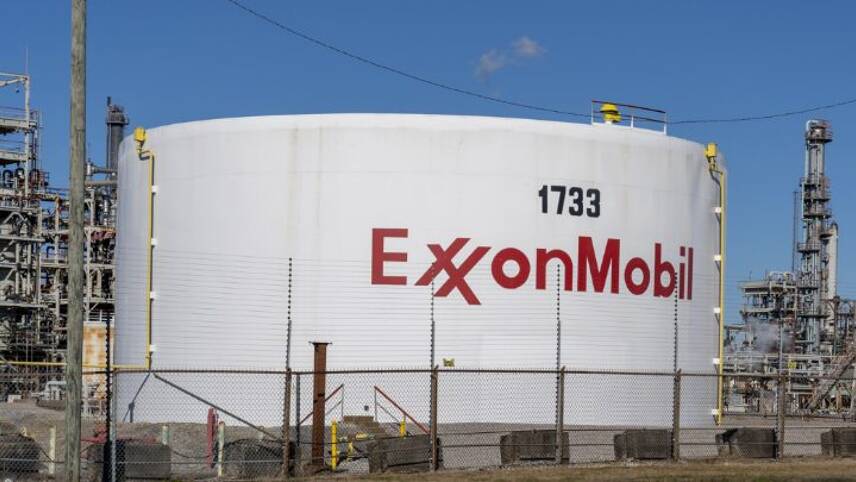Register for free and continue reading
Join our growing army of changemakers and get unlimited access to our premium content

ExxonMobil's 2050 net-zero strategy excludes Scope 3 emissions from the combustion of oil and gas.
Published this week by non-profit As You Sow, the ‘Road to Zero Emissions’ report assesses how 55 of the largest US-based corporates are responding to the growing global net-zero movement and contributing to global efforts to hold temperature increases above pre-industrial levels below 1.5C. Sectors covered include technology, FMCG, retail, transport, energy, chemicals, pharmaceuticals and finance.
Worryingly, none of the 55 companies achieved a top score for target-setting around emissions reductions. As You Sow was looking for target plans including a net-zero goal for 2050 at the latest, applicable to all emissions scopes, underpinned with verified, 1.5C-aligned interim targets.
20 of the companies assessed have no public goal to reduce emissions. Only one-fifth of the companies assessed had set a net-zero target for 2050 or sooner, covering both indirect and direct emissions. Less than half (20) of the firms report all relevant indirect (Scope 3) emissions, and just two firms – Microsoft and Apple – were deemed to have goals to reduce Scope 3 emissions that are 1.5C-aligned.
This finding echoes several recent, separate reports into the credibility of corporate climate commitments. Net-Zero Tracker’s post-COP26 stocktake revealed that 68% of publicly listed businesses have not set targets covering all Scope 3 emissions. More recently, an analysis of 25 corporates’ net-zero plans concluded that they cover, on average, just 40% of the business’s total value chain emissions.
As You Sow has also highlighted how the majority of companies are not reporting their Scope 3 emissions in a credible manner, which could be hampering robust target-setting. 90% of the companies it assessed report their direct (Scope 1) and power-related (Scope 2) emissions, but only 36% reported all of their relevant Scope 3 emissions in line with the GHG Protocol.
Even weaker reporting was recorded around carbon offsetting – another key sticking point for those scrutinizing the credibility of commitments. Just one in five of the companies assessed disclosed the number of carbon offsets purchased, a description of the types of carbon offsets projects, and the verification status of these offsets. Without better information, As You Sow is warning, stakeholders may well conclude that targets are not credible and that action plans are weak.
Companies receiving As You Sow’s lowest overall grade of ‘F’ are Exelon; Amazon; Charter Communications; Chevron; Comcast; Crown Castle International; Dominion Energy; Duke Energy; Eli Lilly & Co; EOG Resources; ExxonMobil; Honeywell International; JP Morgan Chase; Nvida Corporation; Freeport-McMoran; Nextera Energy; Public Storage; Raytheon Technologies; the Sherwin-Williams Company; Square; Home Depot; United Health; Union Pacific Railroad Company; Visa; Berkshire Hathaway and Tesla.
The inclusion of Tesla may raise eyebrows; the company has grown exponentially due to its mission to electrify mobility and change perceptions of electric vehicles (EVs). Nonetheless, its sustainability reporting to date has proven somewhat sparse, and it has no public goals to reduce emissions.
As You Sow awarded just two of the companies its highest overall grade of ‘A’ – Microsoft and PepsiCo. EcoLab was given an ‘A-‘ while Google’s parent company Alphabet received a ‘B’. Apple received a ‘B-‘.
The report from As You Sow comes in the same week that climate scientists issued what has been described the starkest warning yet about the likely future impacts of the global temperature increase on nature, the economy and public health.
edie recently published a feature exploring whether corporate sustainability rankings, like the one in As You Sow’s report, ultimately create more clarity or more confusion. You can read that feature in full here.
Sarah George

